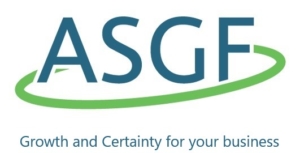The 3 types of mentor you MUST have
This is from an article by Martin Barlow. I have shortened it slightly and I hope you like it
with thanks to: https://www.entrepreneur.com/article/327671
Do you need to make decisions but feel you don’t have all the inputs you’d like?
If anything defines the life of a business owner, it is incomplete information. One way that I have continually found helpful in closing this information gap is through a strong network of mentors, which in my experience come in three varieties: 1. external mentors, 2. internal mentors, and 3. customers.
- External mentors
External mentors are what people typically think of when you describe “mentors.” They can be family, friends, investors, advisors, executive coaches and so on. They take an active role in shaping you and your business from the outside in by providing external perspectives across a vast array of experiences. This can be a huge value-add to us as business owners given we are fairly insular experts in a specific market, software, or solution. Recruiting a strong network of external mentors takes significant time and energy — and it also requires humility, a high degree of self-awareness, and strong listening skills. You need to convince the most relevant individuals you can find that you are eager to absorb and apply their knowledge to challenges your business faces.
But even when you have a great network of external mentors at your back, the complexity of being the business owner is sifting through the various opinions of an incredibly smart group and determining which is the right path for your specific company.
- Internal mentors (aka your team)
I am a strong believer in building a team of the most impressive people you can find, people you would proudly work for under different circumstances. If you are successful at this, your team becomes a group of high-touch, day-to-day mentors from whom you can absorb some highly relevant skills and knowledge. At Fernish, the first hire I made was my co-founder, Lucas. I regularly describe Lucas as the smartest person I know given his deep understanding of technology, organizational management, and a proven ability to methodically build and scale a business. Lucas and I had worked together at a previous startup, Atom Tickets, where we built an excellent working relationship — but it was still a months-long recruiting process to get him to join me and start Fernish. I could have chosen another co-founder and might have got the business off the ground earlier, but the uncertainty around working relationship and skill set would have just added to the already risky nature of starting a business.
We’ve focused on hiring a group of overqualified, fairly senior individuals who are happy to be individual contributors while getting our company into a position to scale. Similar to external mentors, the way to find and convince a team of bar-raising individuals to join you is through a combination of storytelling and humility. And, like in the case of my co-founder, it can take a while. But having strict discipline in hiring that is rooted in rigorous recruiting and screening processes will yield a group that will accelerate both your business trajectory and your entire teams’ learning curve.
Related: Want to Build a High-Performance Team? Start with Trust.
- Customers
While external mentors provide a breadth of applicable perspective and internal mentors propel growth and learnings day-to-day, your customers are actually the most important mentors you can have. Customer development and understanding isn’t just critical to your business, it is your business! How are you speaking to your customers? How often are you doing so? How do you synthesize that information and act upon it? What do you know what your customers value? What motivates them? What do they dislike (What’s stopping them buying more)? What hesitations do they have about using your product or service? How do you get them over the hump to do so? These are not easy questions to answer. At Fernish, we have a methodical approach to customer development — for both active customers and those who don’t quite make it to the bottom of our funnel. It involves a combination of surveys and interviews across a refined list of questions with measurable inputs and actionable outputs. For instance, we’ve found out there is actually a lot to be learned from how much customers are willing to spend on a latte (correlations rather than causations, but who would have thought!). The concept of “customers as mentors” can lead to some tough decisions that go against internal theses and legacy product development. However, these decisions will both align you more closely with your customer and start to fill some of the gaps in information asymmetry.
Related: 3 Ways to Monitor Customer Churn
Building a network of mentors in each of the above varieties is a challenging, time-intensive, and intentional process. But it will provide you with an essential perspective when making decisions with incomplete information. And as you go through this process, I think you will find that engaging with a robust, interdisciplinary mentor network is one of the most rewarding parts of business ownership, because together you make the business more robust and more sustainable.
Let me know if you have any questions.

Leave a Reply
Want to join the discussion?Feel free to contribute!